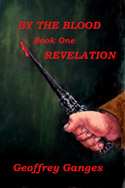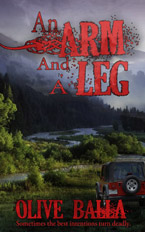By E.H. Hackney
 “Grandpa, I think you have scurvy.” The three-year old we met, while waiting for our table at the Range Cafe, had heard the word on the television the day before and was diagnosing everyone with it, her mother said. It’s easy for me to understand how a child can become enchanted with a new and different word, especially a word like scurvy, that feels so good squirting out of the corner of your mouth, between tooth and cheek. It’s got a strong “r” in it, like a pirate word, and sounds exotic enough that you might just be getting away with something.
“Grandpa, I think you have scurvy.” The three-year old we met, while waiting for our table at the Range Cafe, had heard the word on the television the day before and was diagnosing everyone with it, her mother said. It’s easy for me to understand how a child can become enchanted with a new and different word, especially a word like scurvy, that feels so good squirting out of the corner of your mouth, between tooth and cheek. It’s got a strong “r” in it, like a pirate word, and sounds exotic enough that you might just be getting away with something.
I was hooked on words before I became a writer and have never gotten over it. There are still words that I overuse and often probably misuse because I like the feel of them in my mouth and my ear. Accoutrements is one. Fumfer is another. A decade ago a radio host used fumfer to express her stumbling in trying to get her point across. You won’t find it in a dictionary, but it’s a perfectly functional word, and, in context, there was no doubt as to what she meant.
I like the word skookum, a Chinook word I learned in Seattle, meaning good or hearty or strong or brave. Bumbershoot, canoodling, perspicacity, loquacious—all fun, rhythmic, nearly musical words.
But the strength of words, and most of the fun, is in their use. Questing for the right word is an adventure. What words are best to inspire a child, welcome a friend, inform a colleague, threaten your protagonist, seduce a lover? What word catches the light just so and casts the best shadows on the narrative and on those words before and after? Is there one word that will replace three? Sometimes the apt word glows from within, illuminating the page.
The right word must provide the right function at the right time—propelling ideas when needed, reining in when the pace has become too quick, or pushing off in a new direction. “Propel” and “push” are the chosen words here but, in another mood or context, “thrust” or “drive” might be better. Yes, they hint at sexuality.
How does the word fit with its neighbors? Does it stand too tall and dominating, drawing attention to itself rather than conveying meaning? Is it so timid that it hides, embarrassed, begging to be replaced or deleted?
And it’s the power and vitality of words that are important, not their splendor. Clarity is more important than eloquence. So, though I like the feel of rare words, I prefer to use those I can find in my battered, paperback Webster’s.
Words are ecological. They can be used and used again, even overused, but never used up. They can be consumed by the reader yet they remain.
And they’re democratic. They’re free! The same words are available to you and me as to J.K. Rowling and Terry Pratchett—well, mostly, they are British. The vocabulary that built the Declaration of Independence, the Bill of Rights, and the Constitution belongs to all of us. The parts and pieces needed to construct the speeches of Abraham Lincoln, the works of Ernest Hemingway, John Steinbeck, Mark Twain, James Thurber and T. H. White, and the diatribes of the TV pundits for that matter, are there in our toy box, ours to use as we want. Or misuse. Part of freedom is the right to be wrong.
Words! We love them. So, fellow writers, get out your kit of words and build a story. Have fun. But choose your words carefully.
 E. H. “Hack” Hackney is a retired engineer turned fantasy writer who lives on the east slopes of the Sandia Mountains of New Mexico. His articles and essays have appeared in East Mountain Living magazine, Albuquerque the Magazine, East Mountain Telegraph, The Independent, and SouthWest Sage. He published his first novel By the Blood, Book One: Revelation in 2013 under the pen name Geoffrey Ganges. You can find Hack on Twitter and Facebook and his website GeoffreyGanges.com.
E. H. “Hack” Hackney is a retired engineer turned fantasy writer who lives on the east slopes of the Sandia Mountains of New Mexico. His articles and essays have appeared in East Mountain Living magazine, Albuquerque the Magazine, East Mountain Telegraph, The Independent, and SouthWest Sage. He published his first novel By the Blood, Book One: Revelation in 2013 under the pen name Geoffrey Ganges. You can find Hack on Twitter and Facebook and his website GeoffreyGanges.com.
This article was originally published in the January 2013 issue of SouthWest Sage and is reprinted here by permission of the author.



